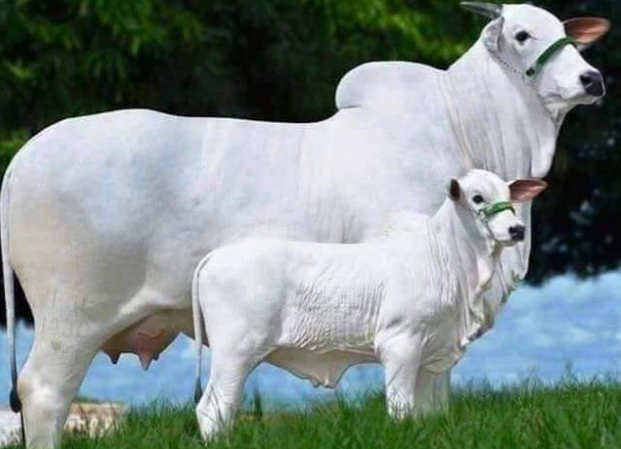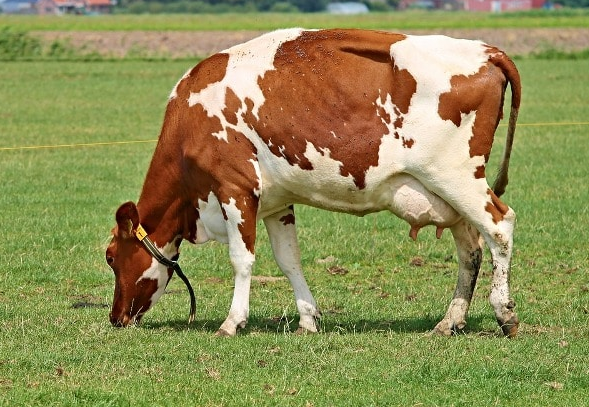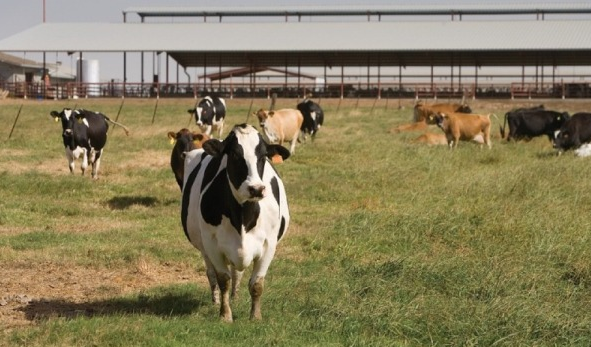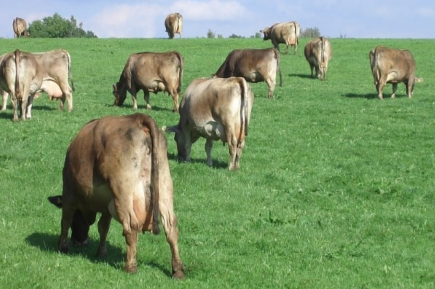Organic Dairy Farming
Back
Organic Dairy farming

Organic Dairy farming means raising animals on organic feed (i.e. pastures cultivated without the use of fertilizers or pesticides), have access to pasture or outside, along with the restricted usage of antibiotics and hormones. Products obtained from Organic dairy farm are the organic dairy products. Organic farming is a system of production, a set of goal-based regulations that allow farmers to manage their own particular situations individually, while maintaining organic integrity.
In the organic dairy farms following protocols/standards are followed.
• Cows and calves are fed 100% organic feed.
• Organic crops, hay, and pasture are grown without the use of synthetic fertilizers and pesticides that have not been carefully screened and approved for organic use.
• Non-natural feed additives and supplements such as vitamins and minerals must also be approved for use in organic.
• Genetically modified organisms (GMOs, called “Excluded Methods” in the regulation) are strictly forbidden.
• Land used to grow organic crops must be free of all prohibited materials for at least three years prior to the first organic harvest.
• Synthetic milk replacers are prohibited. Calves must be fed organic milk.
• All animals must have access to the outdoors, weather permitting. Animals over six months of age must have access to pasture during the growing season.
• Only approved health care products can be used. Many of these are restricted in how and when they can be used. Antibiotics are not allowed.
• Organic animals may not be fed ANY slaughter by-products, urea, or manure.
• The welfare of the animals must be attended to. Certain procedures, such as tail docking, are prohibited. Other procedures, such as dehorning, must be done so as to minimize the stress to the animal.
• An organic farmer must keep sufficient records to verify his or her compliance with the standards.
• Each farm is inspected and audited every year. Any farm can be inspected unannounced at any time.
The organic movement is the concept mainly based on the fundamental principle of healthy soils which leads to healthy crops, healthy animals, healthy humans, and a healthy planet.
Organic crop and livestock production mainly focus on building soil organic matter and biology to create a strong and dynamic environment for producing healthy food and feed.
Defining Organic Dairy or What is Organic Dairy Farming?
Organic Dairy farming is the method of raising animals on organic feed (i.e. Pastures cultivated without the use of fertilizers or pesticides), in grazing lands or farming lands, along with the restricted usage of antibiotics and hormones.
Products we get from the Organic dairy farm are the organic dairy products.
Organic dairy farming is method of production, which sets a goal-based regulation that allow farmers to manage their own situations individually, while maintaining organic integrity.
Organic farming systems rolled out of very high animal welfare standards

Free-range Grazing
The organic farming method is a unique farming system, where the organic cows spend much of their lives outdoors where they can graze naturally on a diet of grass and clover. On average, organic cows spend, 215 days per year the outdoors, which is more time outdoors grazing than the average amount of time spent outdoors compared to normal free-range cows.
In an Organic farming, keeping cows indoors all their lives are strictly avoided. They just go indoor only during the bad weather, all cows should be housed in well-bedded spacious yards.
What makes organic different?
In an organic dairy farming, we should completely strict to some rules like,
• Free range, cows must be at pasture whenever conditions allow, over 200 days on average.
• Fewer pesticides & no artificial fertilizers used for pasture.
• We should feed the cows with grass-rich, GM free diet (minimum 60% grass-based).
• Usage of antibiotics regularly is banned completely.
• The milk produced by the organic cows has higher levels of nutrients, e.g. Omega 3 fatty acids.
In an Organic dairy cows are generally not forced for their milk producing limits in the same way other cows can be. Average yields in milk production by cows in organic farm are around 20% less than in intensive production.
Organic Dairy Farm Management:

Organic Dairy Management
Organic producers of livestock products must not control the disease treatment for representing the livestock product as organic. They should implement a proper herd health program that should include strategies for disease prevention, parasite control and disease treatment.
Vaccination schedule for endemic diseases should be implemented without fail. Herbal, Naturopathic, Homeopathic treatments can use on organic animals.
Antibiotic usage should be restricted to 30 days or twice the labeled time off to drawl period. Usage of hormones is completely avoided. Implement good sanitation practices like Teat dips, milking sanitation chemicals regularly.
In an organic dairy farm:
• The Cows and calves should be fed with 100% organic feed in double cleaned equipment’s.
• Organic crops, hay, and pasture are grown without the use of synthetic fertilizers and pesticides should be in organic dairy farming.
• Using Non-natural feed additives and supplements like vitamins and minerals are benefited.
• We should strictly avoid Synthetic milk replacers. And the Calves should be fed on organic milk only.
• All animals should be allowed graze in outdoors based on weather conditions. Animals over six months of age allowed to graze during the growing season.
• There should be some restriction on the usage of antibiotics, we should use them only used when cows are ill. Treat them with only approved health care products can be used.
• Organic animals may not be fed other slaughter by-products, urea, or manure.
• We should take good care of animal welfare.
• Some traditional procedures like tail docking, are strictly prohibited. And other procedures like dehorning must be done so as to minimize the stress to the animal.
• An organic farmer should maintain the sufficient records to verify his or her compliance with the standards.
• Each farm is inspected and audited regularly.
Organic Dairy Production Requirements:
For an efficient organic farming requires a different production strategy that should include pasture, a high forage diet and a limited role for grains and others concentrates.
All the feeds purchased should be certified organic. And for managing all the organic farm operations you require more labor and a certain level of commitment to the operation and to organic principles.
Pasture Importance in Organic Dairy Farming:

For an organic dairy operation, all cows should have daily free access to pasture, paddocks or runways. Throughout the growing season, cows are allowed to graze outdoors.
